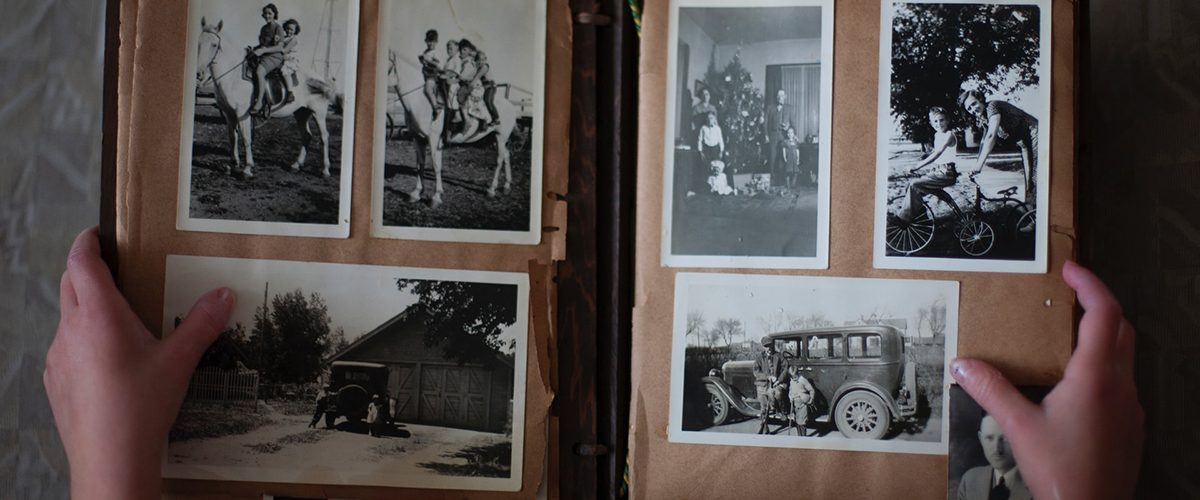Martin Thomasson describes how lockdown encouraged him to rediscover his family’s past and write a collection of memoirs ‘Random Notes from Life’
When my Auntie Madge (my great aunt Madeleine) died, I was very sad; sadder than I’d expected to be. It wasn’t just that she was such a character (she features in a couple of my favourite anecdotes), nor that I would miss her novel turns of phrase: “I’m fit for a couple more trips round the gasworks before I pop my clogs, lad,” she’d replied to an indelicate enquiry, whilst sipping a tot of brandy at her sister’s wake.
It wasn’t even the memory of her many kindnesses to me as a child – her purse snapped open even more readily than her mouth, and the shiny silver sixpences of my infancy became insistently pressed ten bob notes by the time I reached my teens.
What hit home so suddenly and profoundly was that she was the last of her generation. Auntie Madge grew up with my grandfather – her brother. She was raised by my long-suffering great grandmother (who died when I was still a toddler), and my violent, drunken rogue of a great grandfather (long departed when I arrived). Might Madge have had fond memories of her parents? Had she known her own grandparents, I wondered – people whose lives would have stretched well back into the Victorian era?
Most importantly of all, Auntie Madge had known my mum when my mum was just a little girl.
All those stories that will now lie untold forever. All those years when I could have asked, I could have listened, but I didn’t.
When the rising death toll triggered the first Lockdown, I began writing down brief episodes – events from my own life and the lives of those close to me. My ‘anecdotal memoirs,’ as I called them, were my way of leaving a trace, just in case COVID19 rolled up and swept me away.
To begin with, I shared them with friends on Facebook. Each story gave me a manageable task to get me through the day, and offered a five minute distraction for those who bothered to read them. Quite a few people bothered. Many people liked them; some people loved them.
“Even very ordinary people can have quite interesting stories to tell,” as one Facebook acquaintance unflatteringly put it. (I paraphrase, of course, but that was the gist of it.)
Every life offers something of interest to onlookers (though telling it in an interesting way might take practice).
By the time I’d set down a sizeable bundle of these tales (sixty-five) I thought it might be worth compiling them into an ebook to offer to a wider readership. You, if you fancy.
Just to head off misconceptions and possible frustrations, I’ll point out that they’re not in chronological order. There’s no beginning, no middle, and (as yet) no end. The idea is, just like memories themselves, they appear when it suits them, and while one might lead to another, it doesn’t have to. Read one, read a dozen, read the whole lot at a single sitting – it’s up to you.
Having read mine, why not seek out the ‘anecdotal memoirs’ of your own life?
If you’re a younger person, sit down with your elders and encourage them to tell you a tale or two. There’s a knack to it (for instance, you genuinely have to want to hear whatever it is they want to tell), but you’ll soon pick it up.
If you’re an older person (like me) try writing down a few family anecdotes. It’s far less daunting than attempting the story of your entire life and, in the process, you’ll be crafting a tiny heirloom.
Old or young, you’ll be surprised (and gratified) by what you remember, or what you learn.
Once you excavate deep down into the fine detail of it, there’s really no such thing as an ordinary person living an ordinary life.
To settle your nerves, why not take a £1.99 punt and begin by having a read of mine. As Auntie Madge might have said: “Stop actin’ t’rubber pig, and ‘ave a do!”






